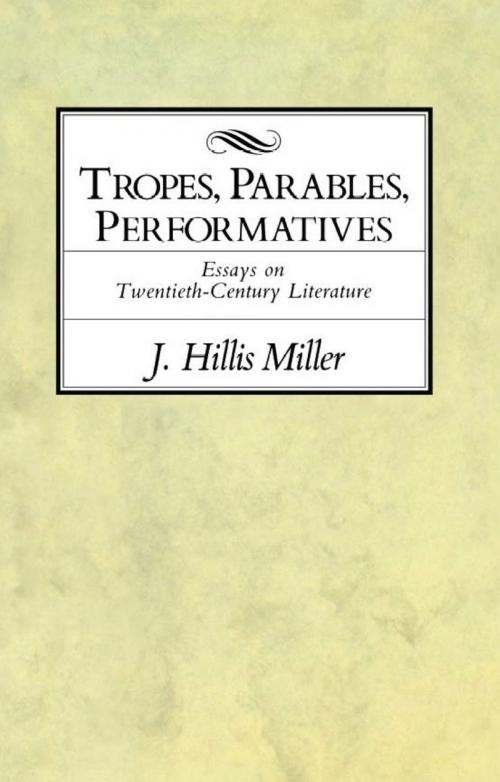| Author: | J. Hillis Miller | ISBN: | 9780822390688 |
| Publisher: | Duke University Press | Publication: | December 6, 1991 |
| Imprint: | Duke University Press Books | Language: | English |
| Author: | J. Hillis Miller |
| ISBN: | 9780822390688 |
| Publisher: | Duke University Press |
| Publication: | December 6, 1991 |
| Imprint: | Duke University Press Books |
| Language: | English |
Tropes, Parables, Performatives collects J. Hillis Miller’s essays on seven major twentieth-century authors: Lawrence, Kafka, Stevens, Williams, Woolf, Hardy, and Conrad. For all their evident differences, these essays from early to late explore a single intuition about literature, which may be framed by three words: “trope,” “parable,” and “performative.”
Throughout these essays Miller is fascinated with the tropological dimension of literary language, with the way figures of speech turn aside the telling of a story or the presentation of a literary theme. The exploration of this turning leads to the recognition that all works of literature are parabolic, “thrown beside” their real meaning. They tell one story but call forth something else.
Miller further agrees that all parables are fundamentally performative. They do not merely name something or give knowledge, but rather use words to make something happen, to get the reader from here to there. Each essay here attempts to formulate what, in a given case, the reader perfomatively enters by way of parabolic trope.
Tropes, Parables, Performatives collects J. Hillis Miller’s essays on seven major twentieth-century authors: Lawrence, Kafka, Stevens, Williams, Woolf, Hardy, and Conrad. For all their evident differences, these essays from early to late explore a single intuition about literature, which may be framed by three words: “trope,” “parable,” and “performative.”
Throughout these essays Miller is fascinated with the tropological dimension of literary language, with the way figures of speech turn aside the telling of a story or the presentation of a literary theme. The exploration of this turning leads to the recognition that all works of literature are parabolic, “thrown beside” their real meaning. They tell one story but call forth something else.
Miller further agrees that all parables are fundamentally performative. They do not merely name something or give knowledge, but rather use words to make something happen, to get the reader from here to there. Each essay here attempts to formulate what, in a given case, the reader perfomatively enters by way of parabolic trope.















